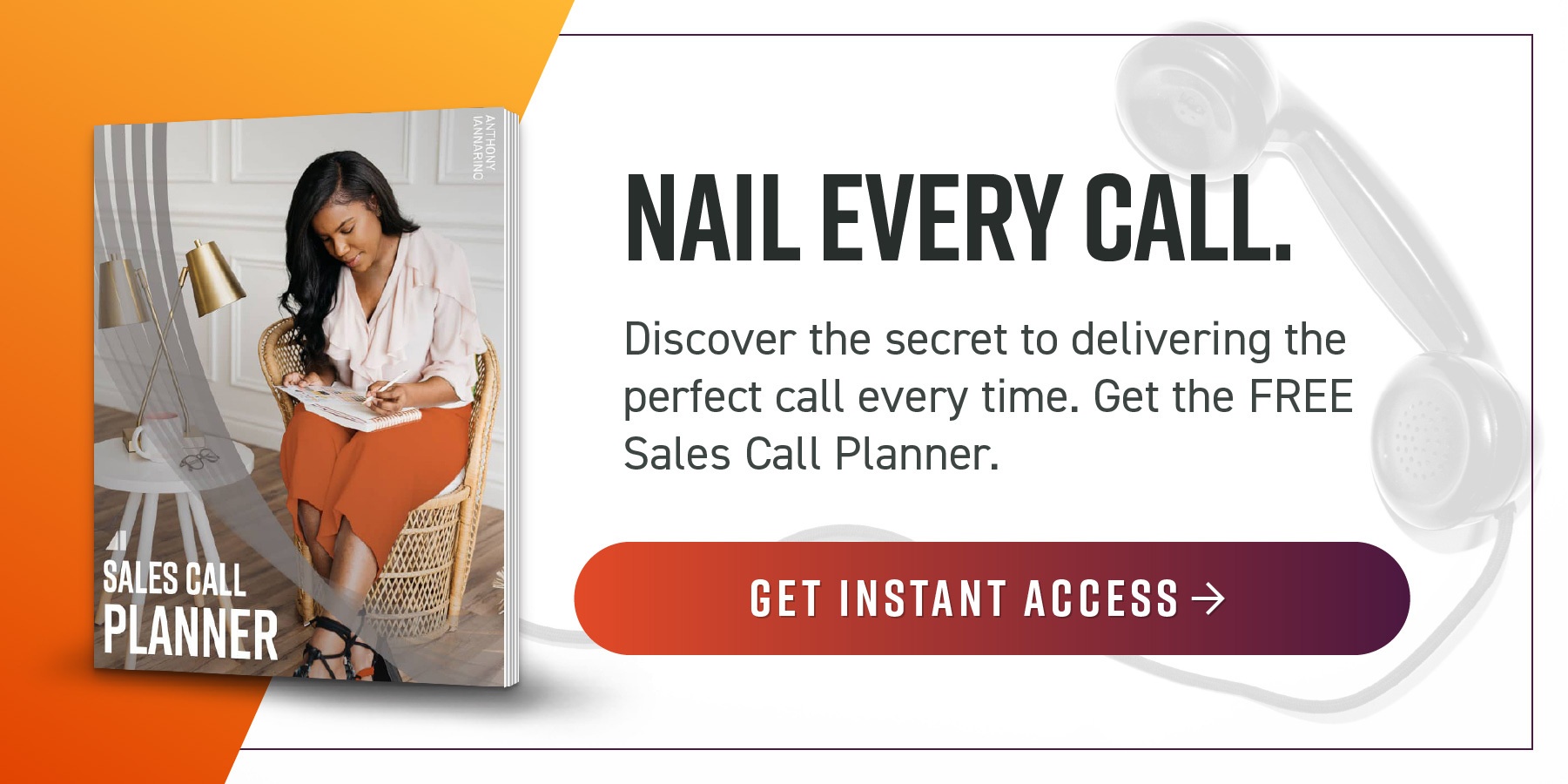My take on objections is that most of the time, they mask a client’s real concerns. Because the client is uncertain, they use objections to avoid a decision or a commitment. Some objections can be taken at face value, while others need to a little interpretation to get at the client’s underlying concern. In the past, sales rebuttals were like arguments, and they didn't help the prospective client move forward.
What follows are 10 sales objections and the rebuttals that will resolve your clients’ concerns. You may have to adjust some of the language when you put them to work. It's also important that you rehearse these so you can speak with confidence.
Objection 1: Now Is Not a Good Time
It’s common for a contact to reject a request for a meeting by saying, "Now is not a good time." This is conveying their concern that the meeting is a waste of time. The tone-deaf salesperson might use the common sales rebuttal, "When would be a better time?" This approach creates greater resistance to a meeting.
The salesperson with the emotional intelligence to recognize the prospective client's real concern has a much better chance of acquiring the meeting by saying, "I understand you are busy, and I promise that the 25 minutes it takes to provide you an executive briefing will be well worth the time, even if there are no next steps now. What does your schedule look like on Thursday afternoon or Friday?"
And just like that, you have a sales rebuttal for all of the objections when you ask for a meeting, including: "Just send me the information," "I don't have time to talk to you right now," "Call me back next quarter," "Sorry but I must cancel," "I am not ready for a buying conversation," "Call me back later in the year," "Call me in January," "I am happy with my current supplier," "Just email me more information and I'll reach out if I need you."
Objection 2: How Did You Get My Information?
Now that we have technology that harvests and verifies contact information, you are certain to hear a sort of objection to the call itself. Most of the time, the data is imported directly into your CRM. No one should be surprised that every database contains their contact information; thank you, surveillance capitalism.
What the prospective client really wants to know is, "How did you get my phone number?" One useful sales rebuttal is something like, "I was fortunate enough to have you assigned to me in our CRM. I've always wanted to work with your company."
Objection 3: You Don't Offer Feature X
If you don't have a way to provide the same outcome as your competitor's Feature X, you are going to be in real trouble here. If you can generate the same or better outcomes, you can resolve the concern by explaining the difference in your approach.
A sales rebuttal like this can help: “We came very close to offering that feature. While we were working on generating the same outcome, we had a significant breakthrough, which allowed us to move to a very different approach. This has helped the companies we work with produce better results in less time. Would it be okay to share what we do instead and why? We’ll have to decide whether this will work for you, but if it does, it will make it easier for you to get the same result."
Objection 4: Your Product Is Too Complicated
The worst possible way to respond to an objection is to disagree with your prospective client. If they suggest that what you sell is too complicated, you can’t argue the client into agreement.
You might start by saying, "It is a little complicated. Because you have a very technical team, our training and support will allow them to produce the better results they described. What do you need to see to be 99 percent certain your team will be able to execute using our product?”
If you are feeling lighthearted, you might also say, "If you met a couple of our clients, you'd know for certain your team will have no trouble working with the product. If they can use it, I have zero doubt about your team. "
Objection 5: I Am Happy with the Way Things Are
This is one of the more difficult objections to address because it reveals an underlying fear of change. Change is difficult, political, visible, and comes with a good bit of uncertainty. Sometimes the best way to address the client's real concern is by asking what they need from you to be able to move forward.
For example: “Our experience is that the longer you go without making this change, the more likely it becomes that you will be forced to do so on a timeline that may not be good for you. If I can manage the change—and make it as painless as possible—would you give me a chance to show you how things can be even better? I believe you can be even happier, especially if we can reduce your costs and give your team their time back. What assurances would you need to be able to consider this change?”
I have had prospects tell me they'd need to speak to existing clients, visit my company, and do a site visit of an existing client.
Objection 6: It's Not a Priority Now
As you might have noticed, the concerns are more difficult. One of the more challenging outcomes in sales is displacing a client's priorities. This one requires you to be One-Up and confident about it. It's even better if you can tie your initiative to the client's other priorities.
You might say something like, “Based on our conversation, it sounds like the outcomes are a major priority. And it looks like if we do this right, we can accelerate your better results in the other ways you shared with us. Can I describe how you might obtain better outcomes without disrupting your business and how to align it with your other initiatives?”
You can weave in elements of Rebuttal #5 if the client will be challenged to make a change on a timeline that is inconvenient.
Objection 7: Your Competitors All Have Lower Prices Than Yours
This is my all-time favorite objection. Because I enjoy using a triangulation strategy to differentiate my model from competitive models, this is perfect.
What to say: "That's true."(Pause for a few seconds for effect.) “We have a very different model. We charge a little more so we can invest more in producing the results our clients need. We’ve seen how the concessions others make cause them to fail, and we refuse to make those concessions. Your price will be slightly higher, and your costs will be much lower in our model. Let me walk you through this.”
No one wants to pay more than they need to produce the results. Until you address the fact that lower-price models come with concessions that will cost more and harm the client's results, your client is right to complain about your price.
Objection 8: You Are Our First Choice; You Need to Sharpen Your Pencil
I am not opposed to negotiating when necessary, but I do worry about giving concessions without pushing back and defending your model.
Consider this rebuttal: "I understand you want to make sure you get the best deal for your company. The choice is really between two models. We charge a little bit more so we can invest more in the better results you need. Other people avoid those investments so they can lower your price. Is it the price that concerns you or the cost?"
This is a “heads I win, tails you lose" question.
If you are going to give a concession, make it small, and ask for something in return. Remember that these objections increase in difficulty. But, you need to have good talk tracks to fuel your rebuttal.
Objection 9: I Cannot Afford to Fail
There are several ways a client might describe this concern. Hearing one is often a good indication that your client wants to buy from you. Whenever a contact skips the objections and blurts out their concern, you are in business. There are two parts to this rebuttal. In the first part, your share what you will do to ensure results. In the second part, you confirm what your contact may need from you.
The first part sounds like this: "We’re here to help you improve your results and prevent you from failing. Can I share with you what we are prepared to do to make sure you succeed?"
The second part sounds like this: "What do you need to be 100 percent comfortable moving forward? Even if we need to do some work to ensure your confidence, let me give you what you need to be able to pursue the better results you shared with us."
Objection 10: I Don't Believe You Can Do What You Say
These direct challenges can be either intimidating or the most fun you can have in sales. From clients that say, "You have two minutes" to the ones that say, "None of your competitors have been able to help us," occasionally you will face a challenge.
Here’s a way to address this: “You are right to be skeptical. Well, I haven't told you the whole story. It took us years to figure out how to get better results, and some of our earliest clients didn’t always benefit from being guinea pigs. The only reason I am confident is because we’ve spent a lot of time working on all the challenges that make it difficult to get results. I’m sorry if I made it sound easy; it’s not. Just like you, we must work hard to make things work. Is that fair?”
The best advice for salespeople is to shuffle straight past the objection to identify the client's real concern. You are only going to progress in the conversation when you resolve that. Make these sales rebuttals your own, and use them to advance the conversation with your prospective clients.












.jpg?width=768&height=994&name=salescall-planner-ebook-v3-1-cover%20(1).jpg)


